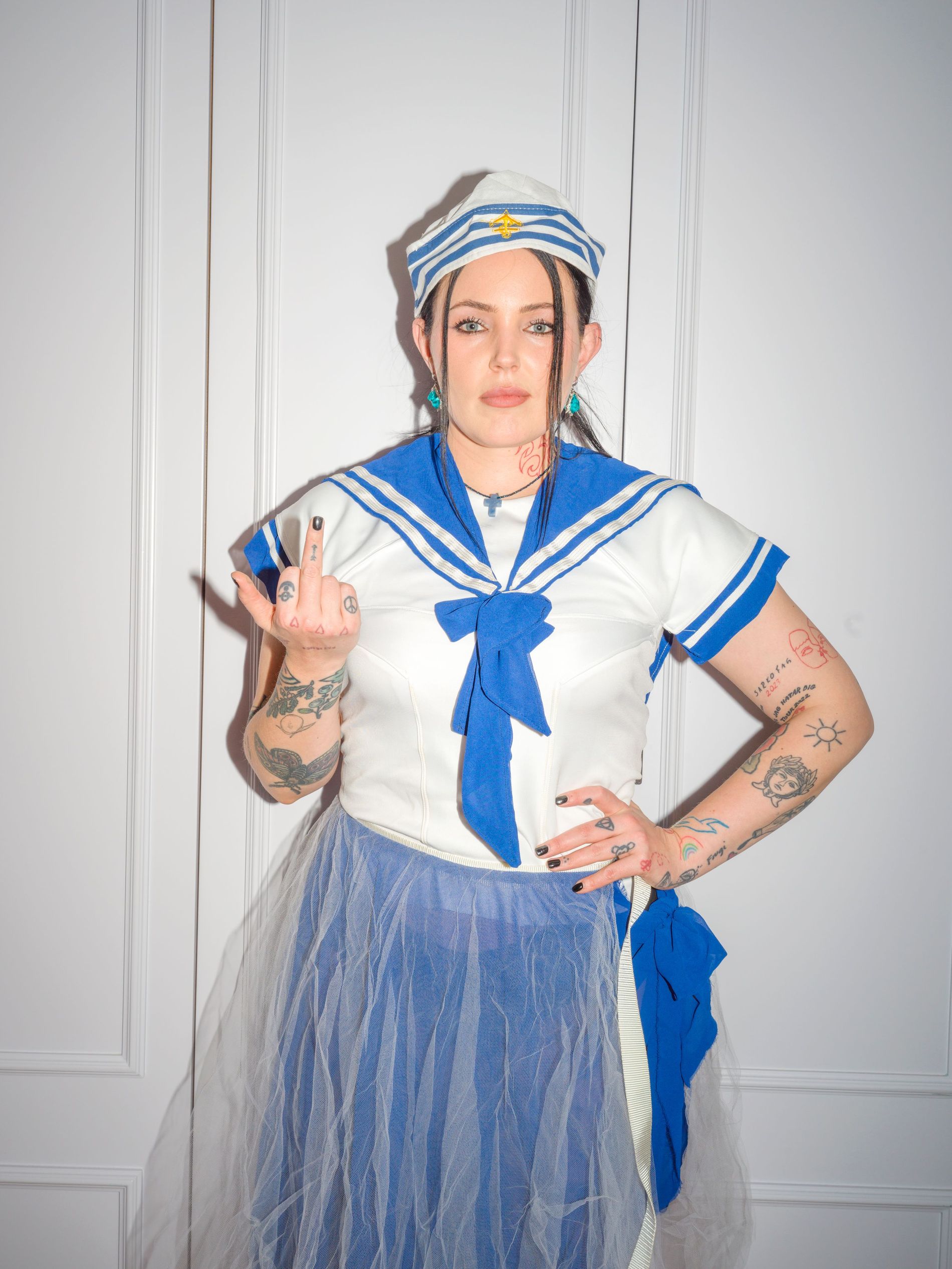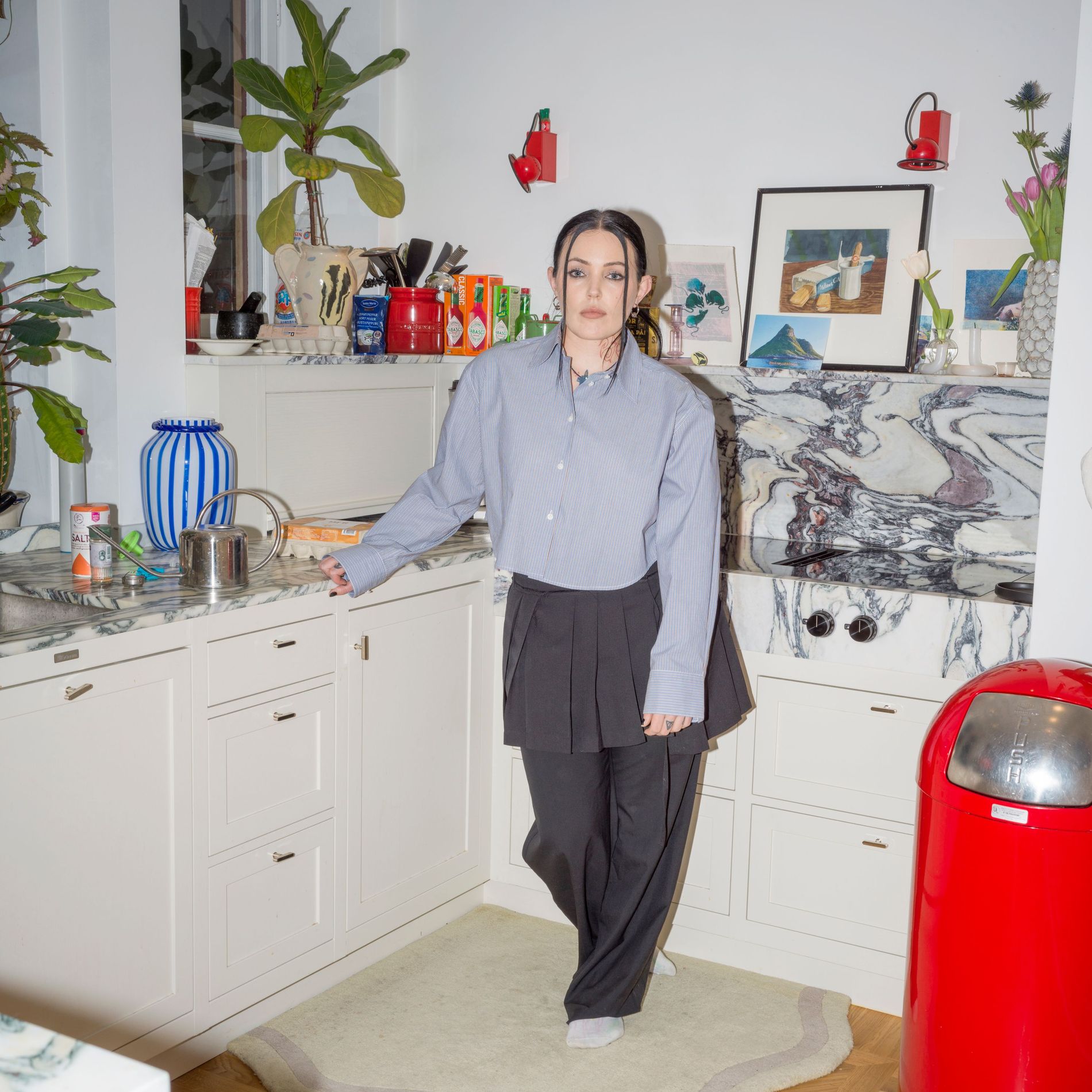Marking the occasion of the release of her new album Okej att dö (OK to die), Miriam Bryant is unflinchingly honest with Vogue Scandinavia about the vulnerable and complex parts of her that it explores – all while trying not to overshare
Though Miriam Bryant is a palpably cool person (cool clothes, cool hair, cool vibe), she is not especially good at playing it cool. “I’m trying not to overshare,” she insists. “But I have a hard time doing anything else. Sometimes I wish I was less ‘blah blah blah,’” – as she says this, she flaps her hand in the universal gesture for talking – "But at the end of the day, all I can do is try to be myself.”
TMI has been Bryant’s default mode since she entered the public consciousness a little over a decade ago, becoming one of Sweden’s biggest pop stars practically overnight. It’s a status she’s maintained, steadily releasing the sort of music that’s both soulfully left-of-centre and radio-slash-streamer friendly (to date she’s had 10 platinum singles, two of which went multi-platinum).
Bryant, who was born in Gothenburg to a Finnish mum and a British dad, overshares in her lyrics, on her television and radio appearances and, lucky for me, in her interviews. In fact, sitting across from Bryant on her caramel-coloured Togo leather sofas in her cool girl Stockholm apartment (think quirky ceramics, art books and a red neon that reads ‘P.S. Jag Hatar Dig’ – the name of her 2021 hit that also translates to ‘P.S. I Hate You’), our chat feels more like a therapy session than an interview. When we settle in, Bryant’s legs curled up under her, she dims the lights with a flick of her iPhone to better set the mood.
Related: In the closet with Miriam Bryant

Photo: Kristian Bengtsson
In fact, Bryant speaks with the self-awareness of someone who’s been going to therapy (which she has). When she was in her 20s, she was all id – openly struggling with anxiety and depression and self-sabotaging relationships. Lately, however, things are different. “When you become 30, you start realising no one is all good or all bad,” says Bryant, who’s 33. “For example, you start thinking about your exes as like, ‘They did they best they could with the emotional tools they had’.” The same goes for Bryant, who is the first to acknowledge she’s been known to do or say the wrong thing from time to time, especially when it comes to relationships. “I’ve been kind of soul-searching all the bad things I’ve done in relationships,” she says. “Times when I’ve been the bad guy.”
